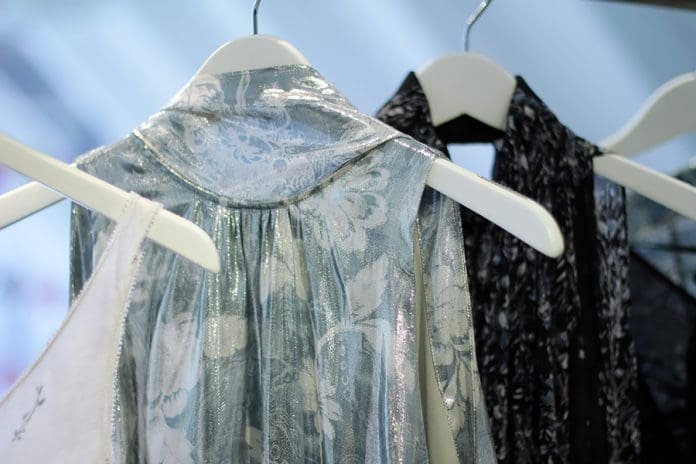The Swedish retailer, which in recent past had to fend off heavy criticism in the wake of the racially offensive t-shirt commercial worldwide, has been ranked as the world’s biggest user of sustainable cotton by the global non-profit Textile Exchange. The group expressed their excitement in a recent tweet, saying that their latest efforts take them “a step closer towards their goal to only use recycled or sustainably sourced materials by 2030.”
Speaking at the third annual Anti Racism Network conference in Johannesburg, H&M country manager Oldouz Mirzaie said they are considering plans to “manufacture some of its products in South Africa.” The announcement, which comes after extensive consumer boycotts in January in SA, forms part of their efforts to repair relations with the local manufacturing sector.
NOWinSA takes a look at various top fashion brands leading the eco-friendly fashion race. This is according to the 2018 Textile Exchange Preferred Fiber Benchmark, which ranks the production of fiber and materials with improved social and environmental impacts.
Who are the leaders?
H&M
The Swedish retailer ranked as the top user of preferred cotton, preferred down, preferred man-made cellulosic and Lyocell. Last year, 59% of the group’s total cotton use was reportedly organic, recycled or better cotton. The retailer has also pledged to use 100% sustainably sourced or recycled materials by 2030, having achieved a rate of 35% in 2017.
Nike
The world’s leading activewear topped the list of recycled polyester users. Since the early 2000s, Nike has been able to repair its once tarnished image and went public with an audacious goal since 2011: to reduce energy use, carbon emissions, water use and waste throughout our value chain by over 50% by 2020. A member of the Sustainable Apparel Coalition, 75 percent of all Nike shoes and apparel are now said to contain some recycled material.

C&A
The global fashion retailer leads in organic cotton usage. The company, which has upped its use of organic or BCI certified cotton to 65 per cent of its collections from 53 per cent since 2016, announced its commitment to sourcing two-thirds of its materials from sustainable sources by 2020.
IKEA
The world’s biggest furniture retailer ranked as the biggest user of recycled cotton. Since 2015, 100% of IKEA cotton is said to come from more sustainable sources, including better cotton, recycled cotton, cotton grown to other sustainability standards in the US. IKEA is helping to transform conventional cotton farming working with partners like Better Cotton Initiative and World Wide Fund.
Deckers Brands
Makers of UGG, Deckers has been named top user of preferred wool. Since UGG boots are one of many clothing products made from animal skin, their production has long been the subject of criticism by the animal liberation movement. However, in recent years, the company announced plans to source 90% of their materials from certified “eco-friendly” suppliers.
Inditex
As the company behind Zara, Inditex is the second largest user of Lyocell (a natural, man-made fibre). Following the fundamental principles of Global Sustainability Policy, one of Inditex’s priorities is to promote the use of more sustainable fibres with have a lower impact on the environment. Inditex was also named the fourth largest user of preferred manmade cellulosic, a synthetic plastic made from a naturally occurring polymer, cellulose.
Target
The second-largest department store retailer in the United States behind Walmart, Target became the third largest user of recycled polyester. Following their recent commitment to source 100 percent sustainable cotton by 2020, Target has introduced a new climate policy aimed at reducing its carbon footprint.
Target was also named fifth largest user of preferred down, which standards safeguards the welfare of geese and ducks that provide down and feathers. By 2025, the company intends to reduce its absolute Scope 1 and Scope 2 emissions below 2015 levels. To do this, Target will begin ramping up its use of renewable solar and wind power to offset energy used at its facilities. This approach is expected to increase energy efficiency of heating and lighting sources in its stores.
A way to go for Southern Africa
Grown in around 80 counties worldwide, in Africa, Senegal (increased by 427%); Uganda (by 155%), Egypt (by 70.3%) and Tanzania (by 17%) lead the way for responsible organic cotton farming. However, Southern African countries such as South Africa, Zambia and Zimbabwe lags far behind in the production of sustainable cotton in the latest report by Textile Exchange.
But as critics may argue, it’s still too early to expect tangible result in SA, given the country’s unfavourable political and economic past. However, one can take solace in that these “eco-friendly” fashion brands have a significant market share in SA, and are doing their bit to positively impact the wellbeing of the communities they operates in.


